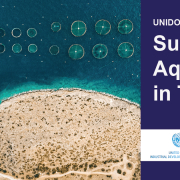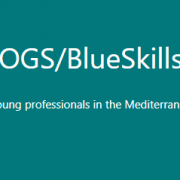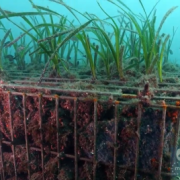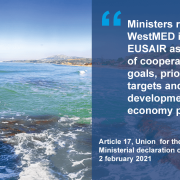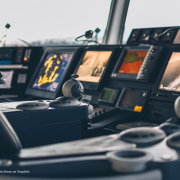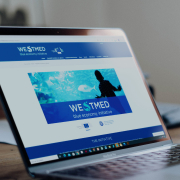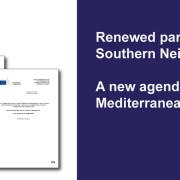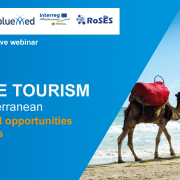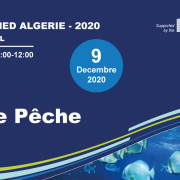Algérie – Stratégie Nationale pour l’Economie Bleue (SNEB) à l’horizon 2030
La promotion du partenariat et développement de l’investissement dans le domaine de la pêche et de l’aquaculture dans le cadre de l’Economie Bleue et dans le cadre de la mise en œuvre du programme du Gouvernement Algérien dans son volet relatif à la pêche et à l’aquaculture et afin de promouvoir le partenariat et le développement de l’investissement, une Stratégie Nationale pour l’Economie Bleue (SNEB) à l’horizon 2030 a été élaborée pour porter la vision qui couvre les conditions d’exploitation, de régulation et de gestion de l’espace maritime et de ses ressources. L’objectif étant de faire de cet espace et de ses ressources des supports et des vecteurs de développement et de valorisation économique durables.
Formulée en coordination avec douze (12) secteurs partenaires, dans le cadre du Programme d’appui de l’Union européenne, la SNEB a la double vocation de porter l’Economie Bleue dans sa globalité et, plus spécifiquement, un programme d’appui au secteur de la pêche à travers le soutien aux pratiques de pêche soutenables sur le plan socio-économique et respectueuses de l’environnement.
Afin d’éclairer le grand public, les professionnels et les opérateurs économiques algériens sur les tenants et aboutissants de cette stratégie, le Ministère de la Pêche et des Productions Halieutiques a organisé, ce mardi 23 mars 2021, une conférence sur la Stratégie Nationale Economie Bleue.
Outre les représentants des secteurs partenaires et de l’Union Européenne, plus de 150 personnes ont pris part à cette conférence, entre présentiel et visioconférence, notamment, des professionnels de la pêche et de l’aquaculture, des opérateurs économiques dans différents domaines d’activités, des acteurs de la société civile et un panel de bailleurs de fonds.
La conférence a permis de mettre en lumière le rôle de la Stratégie Nationale pour l’Economie Bleue dans la mise en adéquation de ses principaux axes d’intervention avec les objectifs de développement des activités liées à la mer notamment la pêche de l’aquaculture afin d’en faire un moteur de croissance et de développement durable ; et dans la contribution à la création d’un environnement attractif propice à des investissements publics et privés générateurs de richesses et d’emplois.
Pour rappel, la stratégie avait fait l’objet, en 2019, de la concertation la plus large, aux échelons national et local, avec l’ensemble des acteurs concernés par le développement du secteur, y compris, ultérieurement, durant la même année, dans le cadre d’ateliers qui ont permis de consolider les résultats de la première concertation.
Couverture de presse:
Lire El Watan
En savoir plus, contacte le Hub National Algérie: algeria@westmed-initiative.eu


